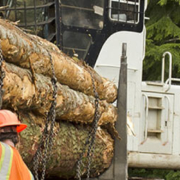The Impact of Road Rage on Truck Accidents
Road rage is a sadly common issue on roads across America. The stresses that people experience at work, at home, and on the road all come out when a driver experiences the smallest inconvenience. The consequences are often tragic. The best-case scenario is two angry drivers whose days just got a little worse, and the worst-case scenario leaves people dead.
Truckers are not protected from the effects of road rage; in one incident in the south suburbs of Chicago, a truck driver was shot by another driver after a road rage confrontation. In another, two tractor-trailer drivers got caught up in a road rage feud that left them both trying to run each other off the road.
Have you been injured in a truck accident fueled by road rage? You need to talk to a personal injury lawyer about your legal options. Call Bailey Javins & Carter at 678-210-3292 to reach our Atlanta office.
What Causes Road Rage?
As efforts to tackle road rage ramp up across the country, there’s a big focus on what causes road rage. Some of the most common causes include:
- Traffic congestion
- Road delays
- Lane closures
- Aggressive driving from other drivers
- Lane or off-ramp merging
- Fatigue
- Work and home irritations that follow a driver onto the road
- Mental health concerns
Most of these issues can’t be addressed on a community-wide level and must be tackled on a personal level. Unfortunately, this means that there’s only so much that experts can do to decrease road rage incidents across the United States.
However, this can help you as a driver. If you know that traffic congestion and delays make other drivers more irritable, you can take steps to stay calm and avoid driving behaviors that may further aggravate others on the road. This isn’t giving in to other drivers’ bad behaviors; it’s just protecting yourself.
How Road Rage Affects Truck Drivers
Many are surprised to find out that road rage affects truck drivers just like it impacts personal drivers. In some cases, truck drivers are the ones taking their road rage out on other drivers—see the story we talked about above, where other drivers watched in horror as tractor-trailers tried to run each other into the ditch.
Truck drivers spend much more time on the road than other drivers, which puts them at greater risk of irritation and impatience caused by road conditions. This job is also associated with high levels of stress and anxiety, which makes drivers more prone to road rage issues.
This is fairly uncommon. While there are cases where truck drivers engage in road rage, it’s far more likely for them to be the target of it. Truck drivers note that other drivers get angry when trucks attempt to merge from an off-ramp or closing lane, despite the fact that it’s unavoidable. They also lash out when trucks move slower than the flow of traffic, despite the fact that many trucks have speed locks that prevent them from going over 65 miles per hour.
Although trucks are unlikely to be directly affected by other drivers engaging in risky behavior on the road—passenger vehicles generally suffer the worst consequences in these crashes—that doesn’t stop drivers from following them and taking out their aggression in person.
Preventing Road Rage and Making the Roads Safer
A number of efforts are addressing road rage in different ways. Public education efforts about the very real dangers of road rage are widespread, as are law enforcement efforts to handle aggressive driving behaviors more proactively. Some trucking companies also offer training programs for truck drivers. These programs teach truck drivers to recognize the triggers of road rage, the signs of road rage in other drivers, and to protect themselves if a driver follows them off the highway.
Contact Bailey Javins & Carter Today
Have you been hurt in a crash caused by an angry or aggressive driver? Reckless drivers should not be free from the consequences of their driving choices. Let us help you fight for the compensation you deserve. Schedule a free consultation with our Atlanta car accident attorneys by calling us at 678-210-3292 or reaching out online.






 Insurance Adjusters misrepresenting your account of an accident
Insurance Adjusters misrepresenting your account of an accident




